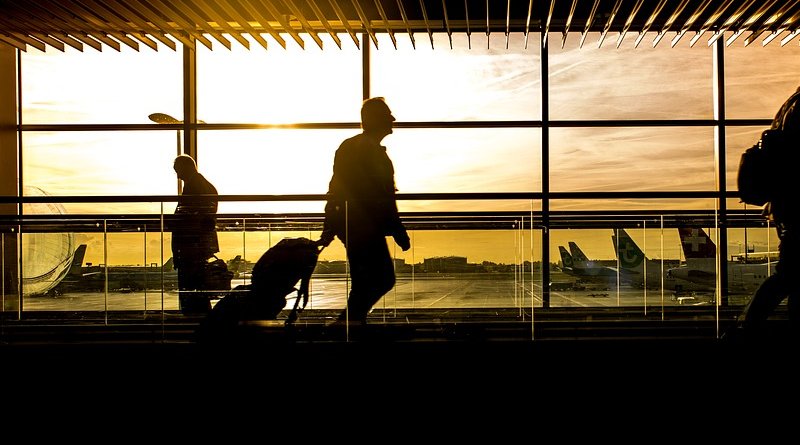COVID Omicron Variant Prompts Biden To Announce Air Travel Curbs On 8 Nations
By VOA
By Linda Givetash
U.S. President Joe Biden has announced travel restrictions on flights from South Africa and seven other countries, effective Monday.
Biden made the announcement Friday after consulting with Dr. Anthony Fauci, his chief medical adviser. The other seven countries are Botswana, Zimbabwe, Namibia, Lesotho, Eswatini, Mozambique and Malawi.
Biden took the action after the World Health Organization designated the new variant, B.1.1.529, a variant of concern and dubbed it omicron.
In his announcement, Biden said he had two important messages for Americans: For those fully vaccinated, “get a booster shot as soon as you are eligible.” And “for those not yet fully vaccinated: get vaccinated today.”
The U.S. president also called for countries to donate vaccines.
“The United States has already donated more vaccines to other countries than every other country combined. It is time for other countries to match America’s speed and generosity,” he said in Friday’s statement.
What is Omicron?
Omicron is the fifth WHO-designated variant of concern. It was first detected in recent weeks in South Africa, which has seen an exponential rise in cases.
Scientists are concerned because there are about 30 mutations on the virus’s spike protein, and that could make it easier to transmit. However, scientists do not yet know if omicron is in fact more transmissible or dangerous.
On Friday, the WHO said the mutations indicated the possibility of an increased risk of reinfection, it said in a statement.
The WHO cautioned against travel restrictions, but several countries have since announced them, including Britain, the European Union and the U.S.
The early detection of the new variant coupled with the restrictions taken now could have a bigger impact than when the delta variant emerged, Jeffrey Barrett, director of COVID-19 Genetics at the Wellcome Sanger Institute in Hinxton, England, told The Associated Press.
“With Delta, it took many, many weeks into India’s terrible wave before it became clear what was going on and delta had already seeded itself in many places in the world and it was too late to do anything about it,” he said. “We may be at an earlier point with this new variant, so there may still be time to do something about it.”
The South African government called the travel restrictions “rushed” and raised concerns about the impact on business.
The CEO of South Africa’s inbound tourism association, David Frost, said the effects would be devastating on the sector.
“We got off the red list in in October and it was sorely needed. We’ve been shut down for over 18 months,” said Frost. “You know, the industry really is on its knees. The impact of this is absolutely dire to livelihoods, to families.”
Dr. Michelle Groome of South Africa’s National Institute for Communicable Diseases said social distancing and mask use could help combat the virus, but she questioned the efficacy of travel bans.
“We haven’t been able to contain the spread initially of the original virus, and all subsequent variants have spread globally,” she said. “I think there’s limited value in terms of these restrictions.”
Instead, she said, vaccinating more of the population would help prevent the most severe cases and deaths.
Roughly 35 percent of South Africa’s adult population is vaccinated, a figure far below targets of 70 percent.
Low vaccination rates
Figures are even lower across much of the African continent. Experts have warned that vaccine inequality would create a breeding ground for the virus to mutate.
Astrid Haas, an independent urban economist in Kampala, Uganda, said, “In Europe now and in North America, in particular, they’re talking about booster shots and third vaccines, whereas we know now from the WHO that less than 10% of African countries are going to even meet their vaccine target for this year. … Just a very sad manifestation of the global vaccine inequity.”
In the absence of vaccinations, lockdowns may be on the horizon.
South African President Cyril Ramaphosa is convening the country’s coronavirus council this weekend in response to the new variant. The government said it would announce any new measures in coming days.

